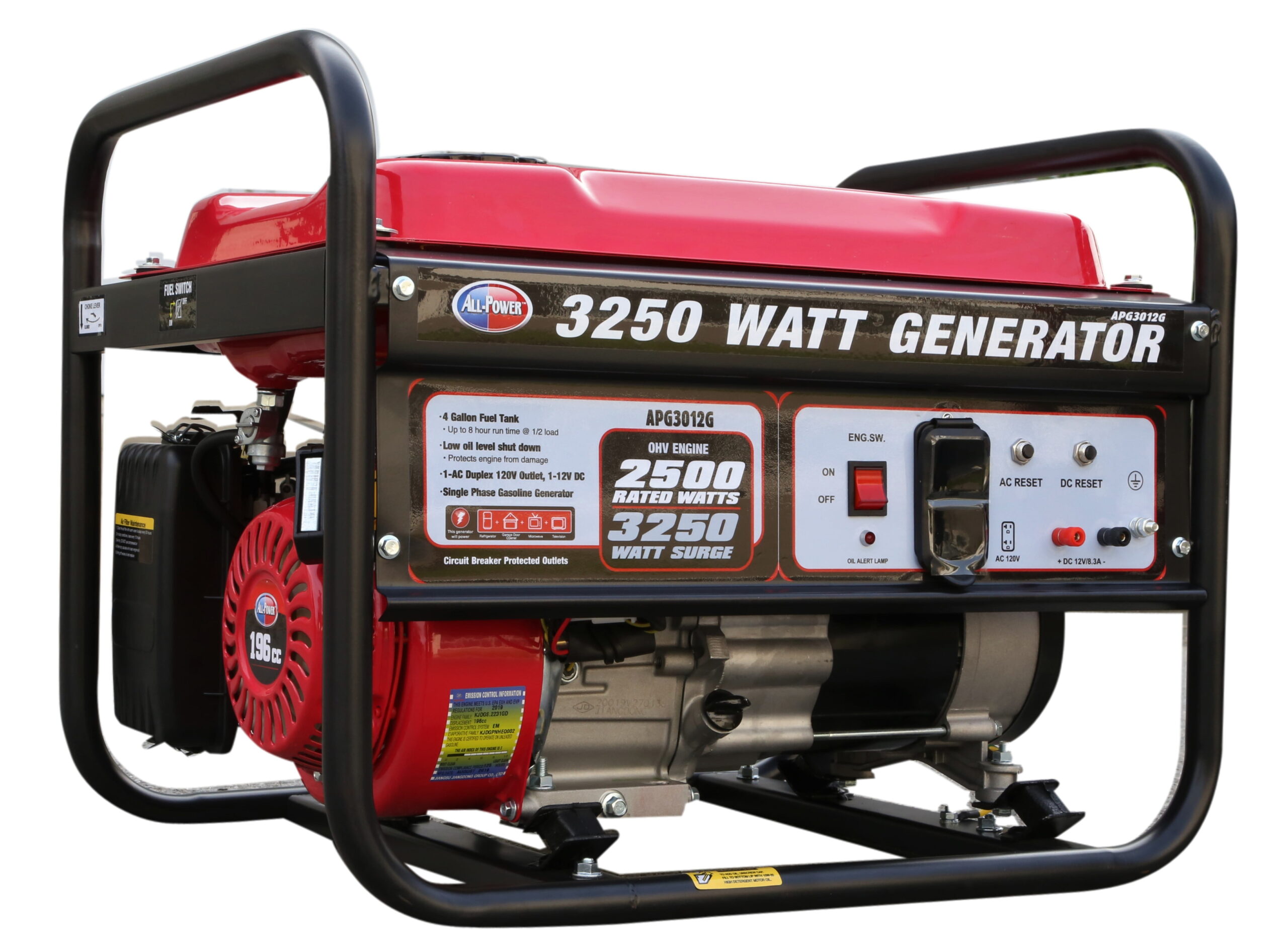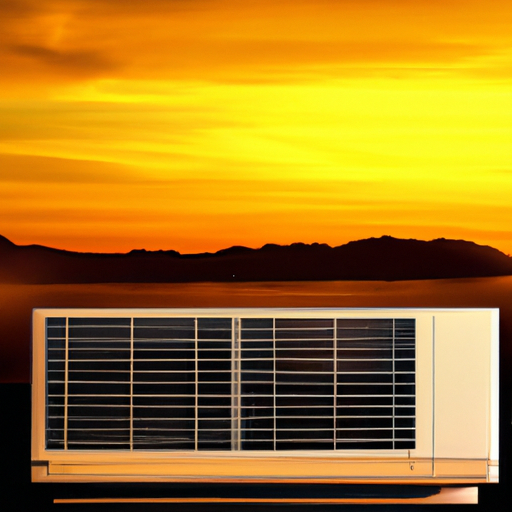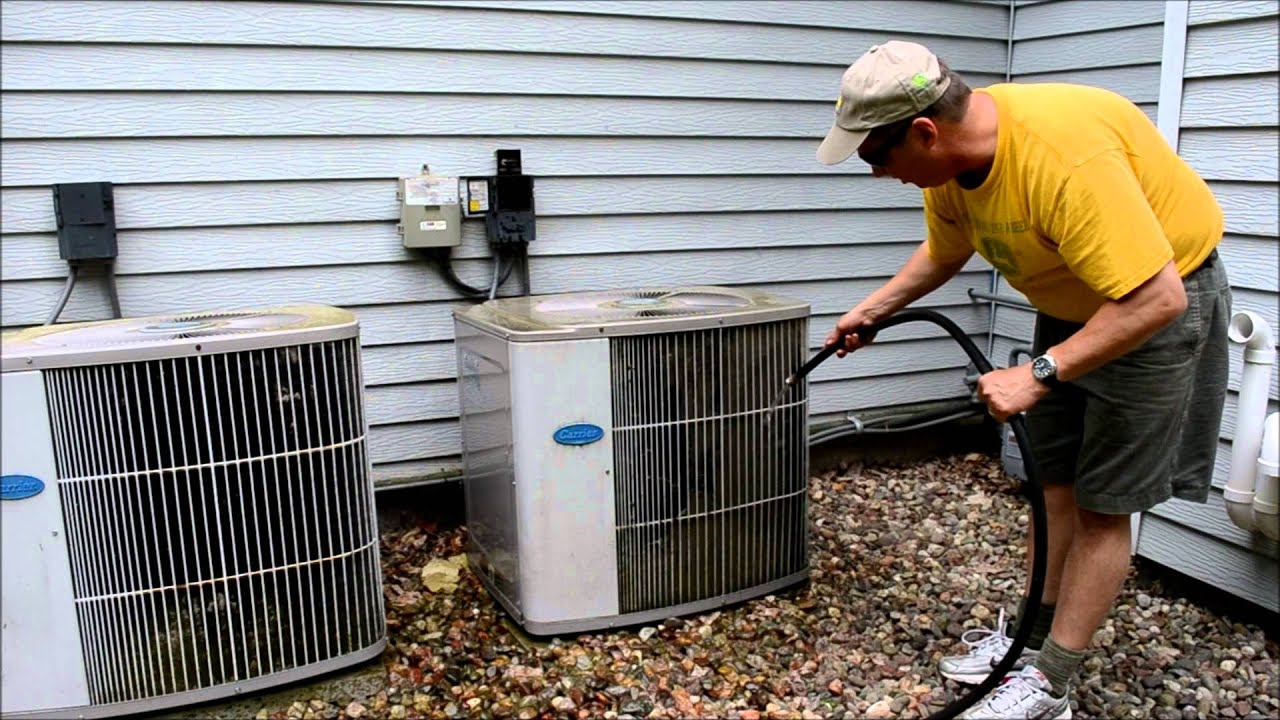Are you tired of feeling uncomfortable in your own home during those scorching summer months? Look no further! In this article, we will explore the most popular air conditioning accessories that are guaranteed to enhance your comfort and provide you with a cool and refreshing atmosphere. Whether you’re looking for improved air quality, energy efficiency, or convenience, these accessories are sure to meet your needs and transform your living space into a cool oasis. Say goodbye to sweaty nights and hello to ultimate relaxation!
Smart Thermostats
Concept of smart thermostats
Smart thermostats are innovative devices that allow you to control the temperature of your home remotely. They are designed to make your life easier by providing you with the ability to adjust the temperature of your home from anywhere, using your smartphone or other internet-connected devices.
Benefits of using smart thermostats
Using smart thermostats offers numerous benefits. Firstly, they provide convenience as you can control the temperature of your home without having to manually adjust the thermostat. This allows you to create a comfortable environment even before you arrive home. Additionally, smart thermostats can help save energy and reduce utility bills by automatically adjusting the temperature based on your habits and schedule. They also provide insightful data and reports on energy usage, enabling you to make informed decisions about reducing energy consumption.
Top smart thermostat brands
When it comes to choosing a smart thermostat, there are several reputable brands to consider. Some of the top brands include Nest, Ecobee, Honeywell, and Emerson. These brands offer a wide range of smart thermostats with various features such as voice control, learning capabilities, and compatibility with other smart home devices. It is important to research and compare the different models and features offered by each brand to find the one that best suits your needs and preferences.
Air Filters
Importance of air filters
Air filters play a crucial role in maintaining good indoor air quality. They help remove dust, pollen, pet dander, and other airborne particles from the air, preventing them from circulating in your home. This is especially important for people with allergies or respiratory conditions as clean air can greatly improve their comfort and well-being. Additionally, air filters also help protect your HVAC system by preventing dust and debris buildup, which can lead to decreased efficiency and potential damage.
Different types of air filters
There are various types of air filters available, each with its own filtration efficiency and lifespan. The most common types include fiberglass filters, pleated filters, electrostatic filters, and high-efficiency particulate air (HEPA) filters. Fiberglass filters are the most basic and affordable option, while pleated filters offer better filtration and a longer lifespan. Electrostatic filters use static electricity to attract and capture particles, and HEPA filters are the most effective in removing even the smallest particles.
Tips on selecting the right air filter
When selecting an air filter, it is important to consider factors such as the level of filtration required, the size compatibility with your HVAC system, and the recommended replacement schedule. High-efficiency filters may provide better air quality but can restrict airflow, so it is important to ensure compatibility with your system’s specifications. Additionally, it is recommended to check the manufacturer’s guidelines and consult with a professional to determine the most suitable air filter for your specific needs.

Air Purifiers
Role of air purifiers
Air purifiers are devices designed to improve indoor air quality by removing pollutants from the air. They work by pulling in air, running it through a filtration system, and then releasing clean air back into the room. Air purifiers can effectively remove various contaminants, including dust, pollen, pet dander, mold spores, and volatile organic compounds (VOCs).
Options of air purifiers
There are different types of air purifiers available in the market. Some common options include HEPA air purifiers, activated carbon air purifiers, and ionizer air purifiers. HEPA air purifiers utilize filters that can capture small particles as small as 0.3 microns, effectively removing allergens and indoor pollutants. Activated carbon air purifiers have the ability to eliminate odors and harmful gases. Ionizer air purifiers work by releasing negative ions into the air, which attach to and neutralize pollutants.
Advantages of using air purifiers
Using air purifiers can provide several benefits. Firstly, they can significantly improve indoor air quality, ensuring that you and your family breathe in clean and healthy air. This is especially beneficial for individuals with allergies, asthma, or other respiratory conditions, as air purifiers can help reduce triggers and alleviate symptoms. Air purifiers can also help remove unpleasant odors, such as cooking smells or pet odors, creating a more pleasant living environment. Additionally, air purifiers can be particularly useful in areas with high pollution levels or during wildfire seasons, as they can help filter out hazardous particles from the air.
Humidifiers
Significance of humidifiers
Humidifiers are devices that add moisture to the air, increasing the humidity levels in indoor spaces. They are particularly useful in dry climates or during winter months when the air tends to be dry. Humidifiers help alleviate symptoms of dry skin, chapped lips, and dry throat. They can also provide relief from respiratory conditions such as allergies, asthma, and sinusitis. Moreover, maintaining optimal humidity levels can help prevent wood furniture and other materials from drying out and cracking.
Varieties of humidifiers
There are different types of humidifiers available, including evaporative humidifiers, ultrasonic humidifiers, and steam humidifiers. Evaporative humidifiers use a fan to blow air over a moistened wick or filter, causing water to evaporate and moisturize the air. Ultrasonic humidifiers produce a fine mist by using ultrasonic vibrations. Steam humidifiers, also known as vaporizers, heat water to produce steam that is then released into the air. Each type has its own advantages and considerations, so it is important to choose one that fits your specific needs.
Using humidifiers for additional comfort
In addition to the health benefits, humidifiers can also enhance overall comfort in your home. They help alleviate dryness in the air, which can cause discomfort, such as dry eyes, dry throat, and static electricity. Humidifiers can also optimize sleep quality by adding moisture to the air, preventing dryness that can lead to irritation and disturbances during sleep. Moreover, humidifiers can help create a soothing environment by reducing snoring and providing relief from nasal congestion.

Dehumidifiers
Role of dehumidifiers
Dehumidifiers are devices that remove excess moisture from the air, reducing humidity levels in indoor spaces. They are particularly useful in areas with high humidity or during humid seasons when excessive moisture can cause issues such as mold growth, musty odors, and condensation on windows. Dehumidifiers work by drawing in air, cooling it to condense the moisture, and then reheating it before releasing it back into the room.
Various dehumidifier options
There are different types of dehumidifiers available, including refrigeration dehumidifiers, desiccant dehumidifiers, and whole-house dehumidifiers. Refrigeration dehumidifiers, also known as compressor dehumidifiers, use a refrigeration process to extract moisture from the air. Desiccant dehumidifiers utilize desiccant materials to absorb moisture. Whole-house dehumidifiers are integrated into the HVAC system and can efficiently dehumidify the entire home.
Importance of dehumidifiers for comfort
Dehumidifiers play a crucial role in maintaining a comfortable indoor environment. Excessive humidity can lead to discomfort, as it makes the air feel heavy and hot, causing you to perspire excessively. This can lead to feelings of stickiness and an overall lack of freshness in the air. Additionally, high humidity levels can contribute to the growth of mold, mildew, and dust mites, which can trigger allergies and respiratory issues. Therefore, using dehumidifiers can help create a more comfortable and healthier living environment by reducing excess moisture and improving air quality.
UV Light Systems
The concept of UV light systems
UV light systems, or ultraviolet light systems, are devices that utilize UV-C light to kill or deactivate microorganisms such as bacteria, viruses, and mold. These systems are installed within the HVAC system and work by exposing the air or surfaces to UV-C light, which disrupts the genetic material of microorganisms, preventing them from replicating and causing harm.
Benefits of UV light systems
Using UV light systems can provide various benefits. Firstly, they help improve indoor air quality by eliminating harmful pathogens that may be present in the air. This can greatly reduce the risk of airborne illnesses and infections. UV light systems also help prevent the growth of mold, mildew, and other microbial organisms on the surfaces of HVAC components, improving system efficiency and preventing the spread of toxins into the air. Additionally, by eliminating these contaminants, UV light systems can help reduce foul odors and improve the overall freshness of the indoor environment.
How UV light systems enhance comfort
UV light systems contribute to enhanced comfort by creating a cleaner and healthier indoor environment. By eliminating harmful pathogens, they help reduce the risk of illnesses and allergies, allowing you to breathe easier and feel more at ease in your home. Furthermore, the prevention of mold growth helps maintain a fresh and pleasant smell within the space, eliminating musty odors that can be unpleasant and intrusive. Overall, UV light systems offer peace of mind and contribute to a more comfortable and enjoyable living environment.
Condensate Pumps
Understanding condensate pumps
Condensate pumps are devices designed to remove condensed water produced by HVAC systems. When air is cooled, it loses moisture in the form of condensation, which needs to be drained away. Condensate pumps efficiently collect this water and pump it out of the system, preventing any water buildup that could potentially cause damage or affect system performance.
Choosing the right condensate pump
When selecting a condensate pump, it is important to consider factors such as capacity, noise level, and reliability. The capacity of the pump should be sufficient to handle the volume of condensate generated by your HVAC system. Noise level can be an important consideration, as some pumps can be noisy during operation, especially if they are located near living spaces. Reliability is crucial, as a malfunctioning pump can lead to water damage and costly repairs. It is recommended to consult with a professional or refer to manufacturer guidelines to ensure that you choose a condensate pump that meets your specific requirements.
How condensate pumps increase comfort
Condensate pumps play a key role in maintaining the efficiency and functionality of your HVAC system. By effectively removing condensed water, they prevent any potential water damage or issues that may arise from water buildup. This ensures that your system operates optimally, providing the desired heating or cooling throughout your home. The presence of a reliable condensate pump offers peace of mind, allowing you to enjoy consistent comfort without any concerns about water-related problems.
Air Conditioner Covers
Use of air conditioner covers
Air conditioner covers are protective covers designed to shield the outdoor unit of your AC system from the elements. They help prevent damage caused by harsh weather conditions such as heavy rain, snow, and hail. Air conditioner covers also help keep the outdoor unit clean and free from debris such as leaves, twigs, and dust, which can negatively impact the performance and efficiency of the system.
Options for air conditioner covers
When it comes to air conditioner covers, there are different options available to suit different needs and preferences. Some covers are made of heavy-duty vinyl or polyester fabric, providing excellent protection against weather conditions. Others are designed with ventilation features to allow proper airflow and prevent moisture buildup. It is important to choose a cover that fits securely and provides adequate protection without obstructing the airflow or causing any damage to the unit.
Advantages of using covers
Using air conditioner covers offers several advantages. Firstly, they help prolong the lifespan of your outdoor unit by protecting it from potential damage caused by weather elements. This can help prevent costly repairs or premature replacement. Air conditioner covers also make maintenance easier by keeping the unit clean and reducing the amount of debris that may accumulate on the coils and other components. Additionally, covers can enhance the overall appearance of your outdoor unit, making it blend in better with your home’s exterior.
HVAC Insulating Products
What are HVAC insulating products?
HVAC insulating products are materials designed to insulate various components of your HVAC system. They help reduce heat transfer and energy loss, improving the overall efficiency of your system. Common HVAC insulating products include insulation for ducts, pipes, and air handlers. These products are typically made of materials with high thermal resistance, such as fiberglass, foam, or reflective foil.
Different types of insulating products
There are different types of HVAC insulating products available, each offering unique benefits. Duct insulation helps prevent heat loss or gain in the ductwork, improving the effectiveness of conditioned air delivery. Pipe insulation helps maintain the temperature of hot water or chilled water in the pipes, reducing energy waste and preventing condensation. Air handler insulation helps prevent heat gain or loss in the air handler unit, optimizing its efficiency. Reflective foil insulation is also commonly used to reflect radiant heat, reducing heat transfer through walls and ceilings.
Benefits of HVAC insulating products
Using HVAC insulating products can provide several benefits. Firstly, they help reduce energy consumption by minimizing heat transfer and improving overall system efficiency. This can lead to lower utility bills and increased energy savings. HVAC insulating products also help regulate temperature fluctuations and improve comfort levels in your home. Additionally, insulation helps minimize noise transmission from the HVAC system, creating a quieter living environment. Moreover, proper insulation helps prolong the lifespan of your HVAC system by reducing strain and wear on the components.
Air Duct Cleaning Equipment
Need for air duct cleaning
Air duct cleaning is an important maintenance task that involves removing accumulated dust, dirt, and debris from the ductwork of your HVAC system. Over time, these contaminants can build up in the ducts and negatively impact indoor air quality. They can also restrict airflow, reduce system efficiency, and contribute to the spread of allergens or pollutants throughout your home. Regular air duct cleaning helps maintain clean and healthy air, prevent blockages, and optimize system performance.
Tools for air duct cleaning
Various tools and equipment are used for air duct cleaning. Some common tools include brushes, high-powered vacuums, air whips, and agitation devices. Brushes are used to dislodge and remove debris from the inner surfaces of the ducts. High-powered vacuums are used to extract the dislodged debris and prevent it from spreading into the air. Air whips and agitation devices are used to agitate and break loose any stubborn dust or dirt within the ducts.
Importance of cleaning for enhanced comfort
Regular air duct cleaning contributes to enhanced comfort in several ways. Firstly, it improves indoor air quality by removing accumulated contaminants, such as dust, pollen, pet dander, and mold spores. This can greatly reduce the occurrence of allergies, asthma attacks, and other respiratory issues. Clean air ducts also ensure optimal airflow, allowing your HVAC system to effectively distribute conditioned air throughout your home, providing consistent comfort in every room. Additionally, air duct cleaning helps prevent musty odors and the spread of unpleasant smells, contributing to a fresher and more pleasant living environment.





